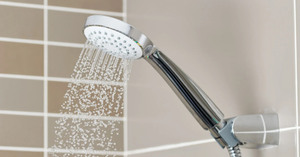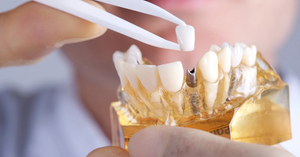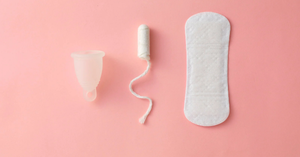In the intricate landscape of human health, sleep emerges as a powerful yet often underestimated guardian of our immune system. While many people invest in vitamins, supplements, and hand sanitizers to ward off seasonal illnesses, the most potent weapon in our health arsenal is something far more fundamental: quality sleep.
The Biological Symphony of Sleep and Immunity
Sleep is not merely a passive state of rest but an active, complex biological process where remarkable immune-enhancing mechanisms unfold. During the hours we spend sleeping, our body orchestrates an intricate defense strategy that goes far beyond simple recuperation.
Cellular Repair and Immune Activation
When we sleep, our body enters a critical phase of cellular repair and immune system optimization. The immune system doesn't simply maintain its baseline function; it actively strengthens and refines its capabilities. This process involves several key biological processes:
- Cytokine Production: These specialized proteins act as communication signals for immune cells. During sleep, the body increases the production of cytokines that help fight infection, regulate inflammation, and coordinate immune responses.
- T-Cell Activation: Sleep enhances the activity of T-cells, critical white blood cells that play a central role in identifying and destroying infected cells. Research suggests that good sleep helps these cells become more efficient at recognizing and responding to potential threats.
- Antibody Generation: The deep stages of sleep are particularly important for generating and reinforcing antibodies, the specialized proteins that help the immune system remember and quickly respond to specific pathogens.
The Consequences of Sleep Deprivation
The relationship between sleep and immunity is not just about what happens during good sleep, but also about the substantial risks associated with insufficient rest.
Weakened Immune Response
Chronic sleep deprivation can lead to:
- Reduced production of protective immune cells
- Increased inflammation in the body
- Higher susceptibility to infections
- Slower recovery times from illnesses
- Increased risk of developing chronic health conditions
Studies have consistently shown that individuals averaging less than 6 hours of sleep per night are up to four times more likely to catch a cold when exposed to the virus compared to those who sleep more than 7 hours.
Optimizing Sleep for Immune Health
1. Consistent Sleep Schedule
Your body's internal clock, or circadian rhythm, plays a crucial role in immune function. By maintaining a consistent sleep schedule, you help synchronize various physiological processes:
- Go to bed and wake up at the same time every day
- Aim for 7-9 hours of sleep
- Minimize variations in sleep time, even on weekends
2. Creating the Ideal Sleep Environment
Your sleeping space should be a sanctuary designed to promote optimal rest:
- Maintain a cool room temperature (around 60-67°F)
- Use blackout curtains or an eye mask to ensure darkness
- Invest in a comfortable mattress and breathable bedding
- Minimize noise or use white noise machines
- Keep electronic devices out of the bedroom
3. Pre-Sleep Routine and Hygiene
Develop a wind-down routine that signals to your body it's time to rest:
- Reduce screen time 1-2 hours before bed
- Practice relaxation techniques like deep breathing or meditation
- Avoid caffeine and alcohol in the evening
- Consider light stretching or gentle yoga
- Read a book or listen to calming music
Nutrition and Sleep
What you eat and drink significantly impacts sleep quality and, consequently, immune function:
- Limit Sugar and Processed Foods: These can disrupt sleep patterns and increase inflammation
- Stay Hydrated: Proper hydration supports overall cellular function
- Consider Sleep-Promoting Foods:
Sleep and Stress Management
Chronic stress is a significant sleep disruptor and immune system suppressant. Implement stress-reduction strategies:
- Regular exercise
- Mindfulness meditation
- Journaling
- Cognitive behavioral techniques
- Seeking social support
Special Considerations During Illness
When you're battling a cold or flu, sleep becomes even more critical:
- Allow yourself extra rest
- Stay hydrated
- Use supportive medications if needed
- Create a comfortable, quiet recovery environment
Sleep and Vaccine Effectiveness
Interestingly, research suggests that good sleep can enhance the body's response to vaccines. Adequate rest before and after vaccination may help improve antibody production and overall immune response.
Long-Term Health Implications
Prioritizing sleep is not just about avoiding short-term illnesses. It's an investment in long-term health:
- Reduced risk of chronic diseases
- Better mental health
- Improved cognitive function
- Enhanced emotional resilience
- More efficient metabolic processes
A Holistic Approach
Remember that sleep is just one component of a comprehensive health strategy. Combine good sleep habits with:
- Regular physical activity
- Balanced nutrition
- Stress management
- Regular medical check-ups
Conclusion
In our productivity-driven world, sleep is often viewed as a luxury or a weakness. However, from an immunological perspective, it is a critical biological necessity. By understanding and respecting our body's need for quality sleep, we empower our immune system to function at its best.
Your immune system works tirelessly to protect you—24 hours a day, 365 days a year. The most meaningful way to support this incredible defense mechanism is through consistent, quality sleep.








Be the first one to comment on this story.